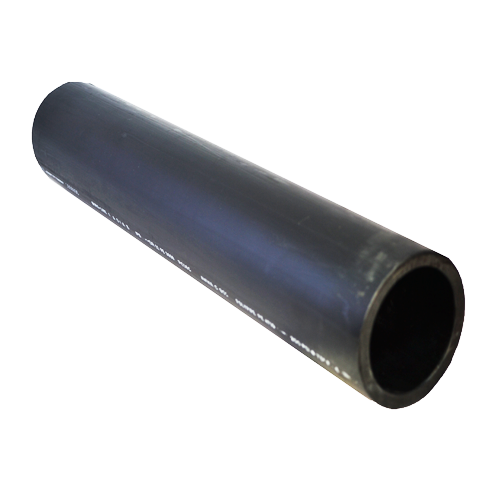Understanding the Secret Perks of HDPE Pipe for Water and Wastewater Administration
Making use of HDPE pipeline in water and wastewater monitoring offers countless advantages that merit factor to consider. Its remarkable longevity and long life-span make it a preferred option for many jobs. Additionally, the material's resistance to deterioration and chemical damages boosts its reliability in various environments. The benefits expand past just longevity and resistance. custom hdpe pipe manufacturing Midland TX. Exploring its cost-effectiveness and ecological effect exposes even more engaging factors for its extensive adoption in modern-day framework
Remarkable Durability and Longevity

HDPE pipeline stands out for its extraordinary sturdiness and longevity, making it a recommended selection in water administration systems. Built from high-density polyethylene, these pipes can hold up against considerable stress and tension, ensuring reliable efficiency in time. Their durable nature allows them to sustain extreme ecological conditions, including temperature level fluctuations and soil activities, which can trigger various other products to fail.
The life-span of HDPE pipes often surpasses half a century, offering a cost-efficient remedy for municipalities and sectors alike. In addition, the product's light-weight homes simplify installation, decreasing labor expenses and timeframes. This resilience reduces the need for frequent repair work or replacements, further enhancing its financial allure.
In water monitoring applications, the integrity of HDPE pipelines means fewer interruptions and improved solution connection, making them important to lasting infrastructure advancement. The combination of resilience and long life strengthens HDPE's role as a foundation in reliable water administration services.

Resistance to Rust and Chemical Damages
While many products catch corrosion and chemical damages with time, HDPE pipes exhibit impressive resistance, making them suitable for different water management applications. This durability stems from the molecular framework of high-density polyethylene, which is naturally non-reactive and does not rust like metals or deteriorate from exposure to rough chemicals. As an outcome, HDPE is extremely reliable in atmospheres with aggressive materials, such as wastewater systems that may include acids, bases, and natural solvents.
Additionally, HDPE pipelines can withstand ecological elements such as dirt acidity and saline conditions, additionally enhancing their viability for diverse applications (American Plastics HDPE Pipe Manufacturing). Their ability to preserve architectural honesty over time decreases the threat of leaks and failures, which is vital in making sure the safety and security and integrity of water distribution and wastewater management systems. The resistance to corrosion and chemical damages substantially adds to the total performance and long life of HDPE piping remedies.
Cost-Effectiveness and Financial Advantages
When taking into consideration the financial ramifications of water management systems, the cost-effectiveness of HDPE pipes becomes evident. These pipelines use lower installation and upkeep expenses compared to traditional products like metal or concrete. Their lightweight nature streamlines transport and installation, resulting in lowered labor expenditures. Furthermore, HDPE pipes exhibit a lengthy life expectancy, commonly surpassing 50 years, which translates to less substitutes and lasting cost savings.
The resistance of HDPE to rust and chemical damage lessens the need for pricey repair work and substitutes. The pipes additionally support reliable water flow, lowering energy prices connected with pumping systems. By mitigating leakages and water loss, HDPE pipes add to substantial financial advantages for towns and industries alike. In general, the initial investment in HDPE piping can generate significant monetary returns over the life-span of the water administration system, making it a sensible option for sustainable facilities growth.
Ecological Sustainability and Minimized Impact

Versatility and Flexibility in Installment
As a result of their special properties, HDPE pipes use amazing adaptability and versatility in installment, making them appropriate Check Out Your URL for a vast array of applications. Their lightweight nature enables less complicated handling and transport, decreasing labor costs and installment time. HDPE pipes can be curved and formed to fit numerous terrains and task needs, which is especially valuable in challenging environments.
Additionally, their resistance to corrosion and chemical damages permits setup in varied setups without the demand for specialized safety finishings. The capability to fuse joints develops a constant, leak-free system, improving the total honesty and reliability of the installation. HDPE's adaptability additionally suits ground movement, lowering the risk of damage in locations vulnerable to moving soil. In general, these attributes make HDPE pipes not just functional but also a recommended option for water and wastewater administration systems.
Frequently Asked Questions
Just How Does HDPE Pipeline Compare to PVC in Water Monitoring Applications?
HDPE pipeline uses remarkable flexibility, resistance to corrosion, and resilience contrasted to PVC. Its lighter weight promotes simpler installment, while its lengthy lifespan lowers substitute costs, making HDPE a favored option in water monitoring applications.
What Is the Lifespan of HDPE Water Lines Under Common Problems?
Under typical conditions, HDPE pipelines can have a life-span ranging from 50 to 100 years. Their durability and resistance to deterioration contribute to their long-lasting performance in different applications, making them a trustworthy selection for framework.
Are HDPE Piping Recyclable After Their Service Life?
Yes, HDPE go to my blog pipes are recyclable after their service life. Texas hdpe pipe manufacturer. They can be processed and repurposed into brand-new products, significantly decreasing environmental influence and advertising sustainability within the industry, browse around here making them an environment-friendly option for piping options
What Is the Installment Process for HDPE Pipes?
The installment process for HDPE pipelines includes website prep work, trenching, pipe fusion or mechanical joining, backfilling, and stress testing. Proper techniques assure a resilient and reliable system for moving water and wastewater efficiently.
Can HDPE Pipeline Be Made Use Of for Both Safe And Clean and Non-Potable Water Systems?
Yes, HDPE pipelines can be utilized for both drinkable and non-potable water supply. Their versatility, sturdiness, and resistance to corrosion make them appropriate for various applications, guaranteeing secure and reliable transport of water in different contexts.